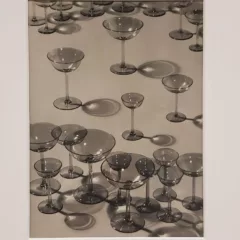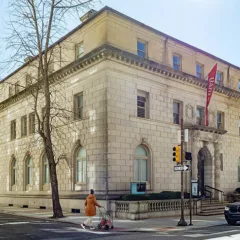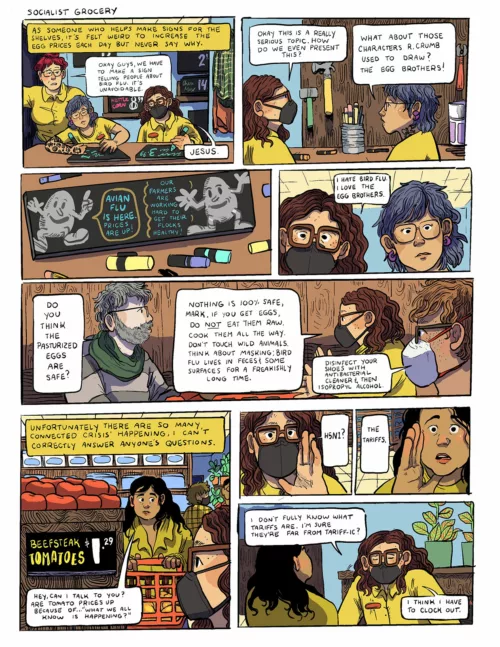Harvey Finkle is a documentary still photographer who has focused on social, economic, political and cultural issues for decades. He mostly works in and around Philadelphia, but has also produced several bodies of work abroad. His affecting retrospective at Painted Bride, “Justice Behind the Lens: The Legacy of Harvey Finkle,” – on through August 13 – fills the main gallery and adjacent room with black and white photographs spanning the last 30 plus years.
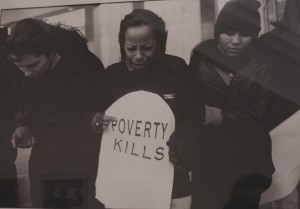
Moving around the show, Finkle’s passion for social issues is apparent, and it is truly impressive how many movements and groups he has collaborated with and documented over the years. He deals a lot with issues surrounding poverty and homelessness, but has also photographed the Deaf Community, anti-death penalty protests, war protests, Kennett Square mushroom workers, and more.
The most striking thing about Finkle’s photos is that they highlight social injustices that many people are not aware of, pay little attention to, or brush under the rug outright. It is well known that there is poverty and homelessness in Philadelphia, but Finkle captures the everyday reality of, and the fight against, it; and the result is eye-opening.
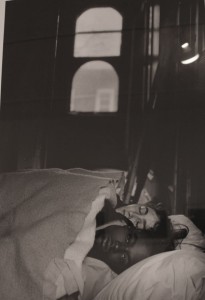
That many of Finkle’s works were shot in Philadelphia highlights the importance of tackling the social issues in one’s own backyard. Finkle’s photographs often showcase the power of local, grassroots action.
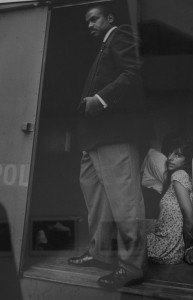
Another nice aspect of this show is the balance between quieter and more animated images. In the above photo, Finkle photographs a woman’s loaded gaze after her arrest. But many images are of people yelling and vigorously waving protest signs. Finkle captures the power of both types of protest.
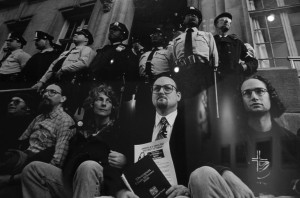
This image of an anti-death penalty protest is strikingly iconic, and feels like it could be a movie still. The dignity in both the protestors’ and police officers’ faces and poses comes through in all of Finkle’s images; his respect for his subjects, regardless of class, race, gender, and sexuality, is apparent.
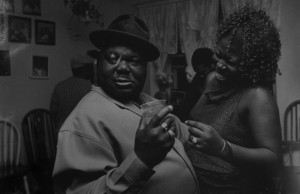
Finkle also photographs scenes of everyday life in Philadelphia and beyond. He is especially interested in documenting diversity; the show includes images from inside the homes, workplaces, and places of worship of Philadelphians with roots from Sierra Leone to Jamaica. The Jamaican image is one of the most playful in the show, but reminds Finkle’s audiences about the importance of knowing one’s community and celebrating its diversity.
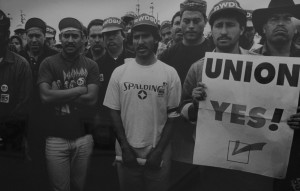
The show is a real eye-opener, and the chance to take in a lifetime of work from the front lines of the fight for all kinds of social change and justice is worth a trip to Painted Bride. An especially good time to see the show is August 6, when Painted Bride and Bread & Roses Community Fund, which Finkle co-founded, team up for a reception from 5-7:30pm.


